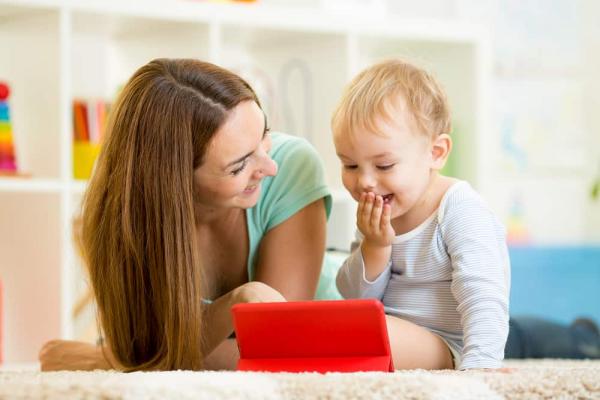
Communication is vital to any relationship: working relationships, romantic relationships, friendships, and family relationships. When it comes to communicating with your children, there are additional challenges thrown into the mix.
Children are still developing their ability to communicate. It may be they don't know the words to use, or what emotions they are feeling, so they do not know how to express them. It takes a lot of patience and development to effectively communicate with your kids, but when you are able to communicate effectively, you will avoid a whole lot of frustration. Here are some helpful hints to develop this skill:
Learn their communication style
There are different types of communication styles: assertive, aggressive, passive-aggressive, submissive and manipulative. One style is not necessarily better or worse than another.
Knowing how to use all styles of communication is beneficial to you. There are certain times when you need each. If you know how your child prefers to communicate, you can understand why they are speaking to you in the way they are. For example, those who tend to be sarcastic are using a passive-aggressive form of communication. If you understand this, you can learn not to take it personally, and teach them what is right or wrong about that type of communication.
Your children respond to how you communicate to them. As parents it is natural to use aggressive communication. When your children upset you the first response is usually a strong tone with firm commands and a raised voice, but this is not always affective with every child. Try different forms of communication with your children to see what works best for them.
Closed vs. open-ended questions
Anyone who has worked in a business setting has probably learned that open ended questions are usually the best form to take when asking a question, but with children this is not always the case.
If I ask my young children an open ended question such as "Why are you upset?" they usually look at me with blank faces. They may not fully understand what I am asking them, and even if they do, they may not know the answer. Instead try asking them if they are sad, mad, happy, or excited. By asking yes or no questions you will give them the opportunity to think about the exact emotion you are saying and decide if that is how they feel or not.
As your kids age, open ended questions become more appropriate. Try starting with an open ended question. If my child does not respond I will start down a list of yes or no questions. Often times by asking a closed ended question I will inspire a different response than yes or no.
Teach them about their emotions
Emotions are hard to understand. There are times when I don't even know what I am feeling. Teach your children about emotions as they experience them. If they are angry at their sibling tell them they are feeling anger, and help them to deal with it appropriately. The same is true for sadness, fear and happiness. By learning about the emotions they are feeling, children will develop an understanding of how to control them.
Be an example
Children learn most of their behavior through observation. Good communication skills start in the home. If you tend to yell all the time, your children will include this in their own conversations (as I have learned from experience). If you express your emotions with words rather than physically, your children will learn this as well.
We are not afraid to talk about our emotions in our home. If we have a problem with someone, we tell that person to their face. Not in a mean way, but in a way that inspires a discussion about the issue. My children witness these encounters between my husband and I, and hopefully are learning that expressing yourself when you are upset or hurt is okay. We do not yell, name call or swear during our conversations, but we are not perfect, and it is not always the most pleasant conversation. If your children do witness this kind of encounter make sure they are there for the whole thing. It is important for children to see you reach a conclusion with the problem. Let them see you kiss and make up, it reinforces that everything is okay despite having a minor hiccup in your happy home environment.
Learning to communicate can be hard to do, it takes a lot of patience and often a lot of time learning what works for your family. Hopefully these tricks can help you find the best way to communicate with your own children.

